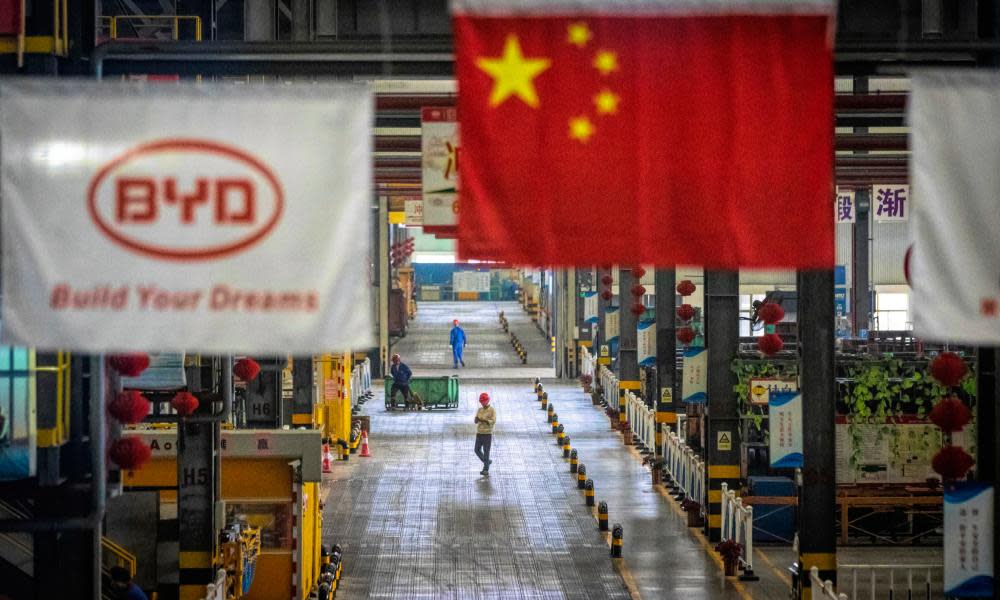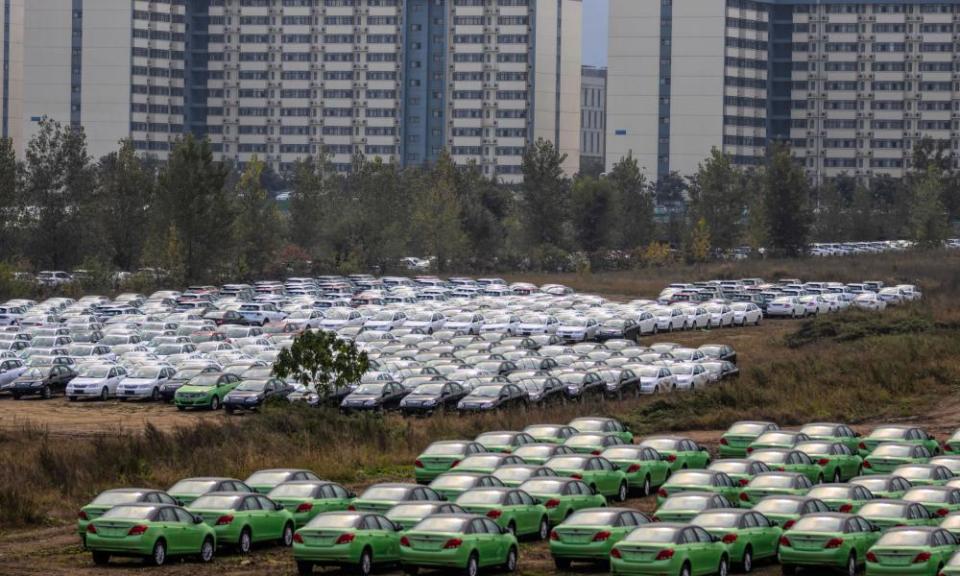EV battle heats up in Australia with plan to sell affordable Chinese import for $35,000

The race to bring an affordable electric car to Australia is about to kick into high gear with a Sydney-based company’s plan to import a new passenger car for less than $35,000.
Among the cheapest zero-emissions vehicles now on the market in Australia is the Chinese-made MG ZS EV, which sells for $43,990.
That, however, may be about to change after Australian company TrueGreen Mobility signed a deal with Chinese carmaker BYD to import a new hatchback that it claims will retail for less than $35,000.
As we see more batteries produced, that drives down the price, which is a significant portion of EV costs
Jake Whitehead, University of Queensland
TrueGreen Mobility’s CEO Luke Todd said the scheme was the first step in a long-term plan to import cars built for Australian roads.
“What we’ve seen in the last six to 12 months is the reality that EVs are taking a foothold, whether it be trucks, buses or cars,” Todd said.
TrueGreen Mobility wants the hatchback to hit roads as early as next year, with ambitious plans to deliver a range of six other BYD models over the next 24 months.
Noah Shultz-Byard, the South Australian director for the Australia Institute, said the emergence of cheaper EV models may prove a “significant moment” for the country’s car market.

“There are some manufacturers who have cited the lack of support policies in this country as to why they haven’t brought EV models to Australia, specifically,’’ he said. “That’s been a barrier to entry for new models and that’s kept the price high.
“Considering those major hurdles, if an electric vehicle manufacturer is able to come to Australia with an affordable EV, that would be a significant moment in the transition of our transport system.”
Related: 'Still far too low': Australia's electric vehicle industry says fourfold imports jump not enough
Founded in 1987, BYD has been building cars for the past three decades but has seen its fortunes rise substantially as it has grown into one of the largest global manufacturers of electric vehicles, often vying with Tesla for pole position.
Unlike legacy car manufacturers, BYD is similar to Tesla in that it also manufactures its own lithium batteries. In 2018 the company broke ground on its third megafactory in Qinghai, China.
The company, which counts Warren Buffet as an investor, has since continued its expansion by targeting the affordable passenger car market. In Australia, the hope is its cars will be sold at price parity with petrol vehicles.
Should the deal with TrueGreen Mobility succeed, the Chinese carmaker could corner a section of the Australian electric car market before competitors in Europe and North America.
Jake Whitehead, an e-mobility fellow at the University of Queensland, said that whether this dream will come true depends on the company’s ability to build brand recognition.

“It’s like any product with economies of scale: if you can produce more volume, you can drive down the price, and that’s what we’re seeing happen right across the global vehicle market,” Whitehead said. “As we see more batteries produced, that drives down the price, which is a significant portion of EV costs.
“Obviously companies that can accelerate up that ramp quickly will have cheaper vehicles to market, sooner. Ultimately, though, the proof is in the pudding in terms of what they deliver in the end.”
Related: We must do more to drive the uptake of electric vehicles in Australia | Trent Zimmerman
Thanks to the Australian government’s neglect of the sector, other manufacturers have preferred to focus their attention on markets where regulations around electric vehicles are clear and left-hand drives dominate, making Australia a potential destination for heavier, higher-polluting petrol vehicles that are unable to be sold elsewhere.
The deal may also mean big things for TrueGreen Mobility.
The company builds electric buses at a workshop in Ballarat in Victoria and Glendenning in New South Wales, mostly catering to the needs of state governments looking to transition their bus fleet.
It has so far built 110 electric buses in collaboration with BYD.
We want to bring the best products from around the world to Australia
Luke Todd, TrueGreen Mobility
Under the agreement, Todd said his company will be given a production line in a BYD factory to produce variant models built for local conditions where production is overseen by an Australian engineering team.
Once imported, they won’t be sold under a traditional dealership model.
“We are an online, direct platform,” Todd said. “In the traditional dealership model, from the time the vehicle leaves the factory to the point where a person takes the key, there’s 13 touchpoints where someone takes a clip.”
Related: Australia lags the world on electric vehicle choice and it's hurting take-up, industry says
The approach will help build capacity as the company plans a $700m “clean tech” hub at Moss Vale in NSW, which would provide the company with the capacity to assemble and manufacture vehicles locally.
Eventually, Todd said, the company planned to manufacture an electric ute in Australia but he stressed that was a long way off and its primary focus was to hit the Australian market with cheap electric vehicles.
“We want to bring the best products from around the world to Australia,” Todd said. “We’re just looking to put the best vehicles on Australian roads.
“The only way to do that for the moment is to leverage the tens of millions of dollars of investment that goes into these megafactories, and we’re the first Australian company to do that.”

 Yahoo News
Yahoo News 
